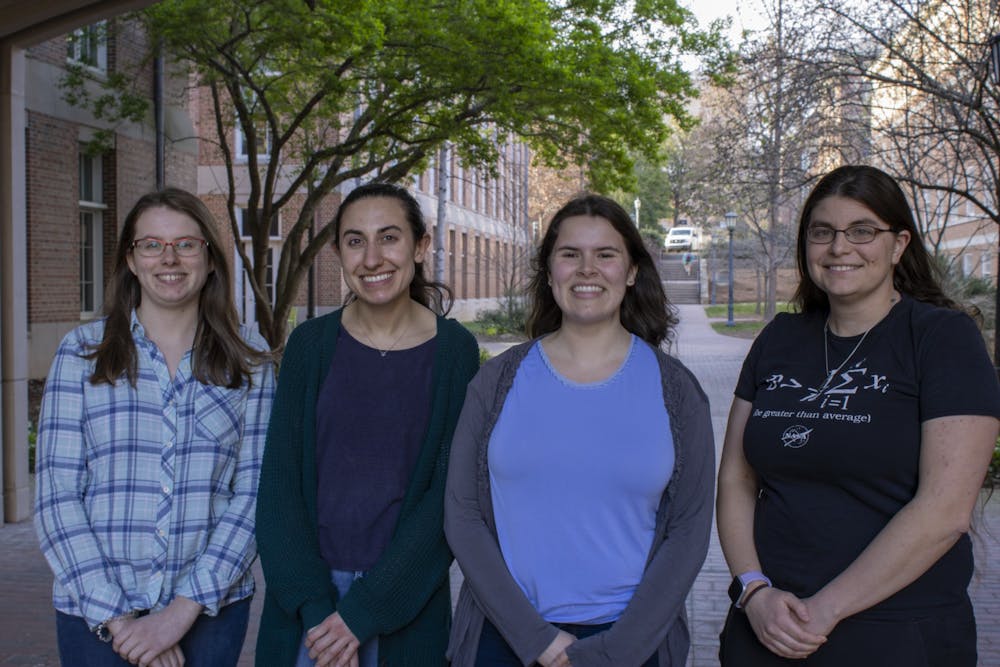Michelle Lee, a second-year graduate student in the UNC Department of Physics and Astronomy, said that she has always noticed subtleties in the way women and minorities are treated in STEM.
Although she said she has never experienced explicit discrimination, she wants to help change the culture of inclusivity in STEM at the University so that no one has to experience feeling isolated in their field.
Allies for Minorities and Women in Science and Engineering — or AM_WISE — is a group of UNC graduate students who serve as a support system for women and minorities in the sciences. Lee along with Supraja Chittari, a third-year graduate student in the Department of Chemistry, are co-presidents for the group.
“AM_WISE is all about providing a platform and scaffolding for underrepresented students, graduate students and undergrads alike,” Chittari said. “So, it's important for us to figure out where the holes are in the leaky pipeline here at our University and find ways to address those.”
A main way that the group is addressing inequalities at the University is by conducting a climate survey for the chemistry and physics departments every two years. The survey asks students questions regarding harassment, diversity and inclusion and other feedback about the environment of the departments, Brittany Huffman, a fifth-year graduate student in the chemistry department and officer in AM_WISE, said.
She said women and minorities within the field face greater barriers to success than white men.
“So, quantifying how that affects our departments and giving the chemistry and physics departments that information on what their current student population is feeling, and specifically how we think that we could improve the graduate experience, is very powerful,” Huffman said.
Chittari hopes the survey opens opportunities for communication for STEM students of minority backgrounds, which is a common challenge they face in higher education. She believes the survey has been successful because it is done by students, for students, giving them an opportunity to voice their opinions to their respective science departments.
“Especially if you don't see anybody like you in the faculty, you don't see anybody like you in the department, or the way that you're reflected is only very few and far between, it's hard to find support. And it's hard to communicate your concerns effectively,” Chittari said.



